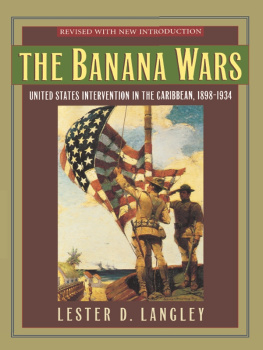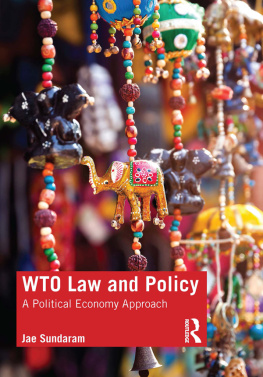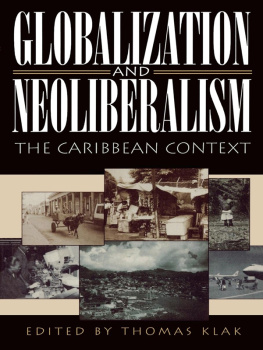
DISLOCATIONS
General Editors: August Carbonella, Memorial University of Newfoundland, Don Kalb, University of Utrecht & Central European University, Linda Green, University of Arizona
The immense dislocations and suffering caused by neoliberal globalization, the retreat of the welfare state in the last decades of the twentieth century, and the heightened military imperialism at the turn of the twenty-first century have raised urgent questions about the temporal and spatial dimensions of power. Through stimulating critical perspectives and new and cross-disciplinary frameworks that reflect recent innovations in the social and human sciences, this series provides a forum for politically engaged and theoretically imaginative responses to these important issues of late modernity.
Volume 1
Where Have All the Homeless Gone?: The Making and Unmaking of a Crisis
Anthony Marcus
Volume 2
Blood and Oranges: European Markets and Immigrant Labor in Rural Greece
Christopher M. Lawrence
Volume 3
Struggles for Home: Violence, Hope and the Movement of People
Edited by Stef Jansen and Staff an Lfving
Volume 4
Slipping Away: Banana Politics and Fair Trade in the Eastern Caribbean
Mark Moberg
SLIPPING AWAY
Banana Politics and Fair Trade
in the Eastern Caribbean
Mark Moberg
Berghahn Books
NEW YORK OXFORD
First published in 2008 by
Berghahn Books
www.berghahnbooks.com
2008, 2011 Mark Moberg
First paperback edition published in 2011
All rights reserved.
Except for the quotation of short passages for the purposes of criticism and review, no part of this book may be reproduced in any form or by any means, electronic or mechanical, including photocopying, recording, or any information storage and retrieval system now known or to be invented, without written permission of the publisher.
Library of Congress Cataloging-in-Publication Data
Moberg, Mark, 1959
Slipping away : banana politics and fair trade in the Eastern Caribbean / Mark Moberg.
p. cm. (Dislocations ; 4)
Includes bibliographical references and index.
ISBN 978-1-84545-145-5 (hbk) ISBN 978-1-84545-197-4 (pbk)
1. Banana tradeSaint Lucia. 2. Banana growersSaint Lucia. 3. GlobalizationEconomic aspectsSaint Lucia. 4. Competition, Unfair. I. Title.
HD9259.B3S1736 2008
382'.41477209729843dc22
2008032704
British Library Cataloguing in Publication Data
A catalogue record for this book is available from the British Library
Printed in the United States on acid-free paper.
ISBN: 978-1-84545-145-5 hardback
ISBN: 978-1-84545-197-4 paperback
For Tawnya
LIST OF FIGURES
LIST OF TABLES
LIST OF ABBREVIATIONS
| ACP | African, Caribbean and Pacific countries |
| BERU | Banana Emergency Recovery Unit (Government of St. Lucia) |
| BGA | Banana Growers' Association |
| BSC | Banana Salvation Committee |
| COLSIBA | Confederacin Latinoamericana de Sindicatos Bananeros |
| DBCP | 1, 2-Dibromo-3-chloropropane |
| EC $ | Eastern Caribbean dollar (EC $1.00=US $0.38) |
| ECU | European Currency Unit |
| EU | European Union |
| EUREP GAP | European Retailers' Working Group Good Agricultural Practices |
| EUROBAN | European Banana Action Network |
| FLO | Fairtrade Labeling Organizations International |
| GATT | General Agreement on Tariffs and Trade |
| HYV | High Yielding Variety |
| ICCR | Interfaith Center on Corporate Responsibility |
| ILO | International Labor Organization (of the United Nations) |
| IMF | International Monetary Fund |
| IRDC | Inland Reception and Distribution Centre |
| JBPA | Jamaica Banana Producers' Association |
| MVDP | Mabouya Valley Development Project |
| NDM | National Development Movement |
| NDP | New Democratic Party |
| NJM | New Jewel Movement |
| OAS | Organization of American States |
| ONE | Organization for National Empowerment |
| PUWS | Percent Units Within Specifications |
| SLAM | St. Lucia Action Movement |
| SLBC | St. Lucia Banana Company |
| SLNFTA | St. Lucia National Fair Trade Association |
| SLP | St. Lucia Labour Party |
| SSU | Special Services Unit |
| STABEX | Systme de Stabilisation des Recettes d'Exportation |
| STEP | Short Term Employment Programme |
| TQFC | Total Quality Fruit Company |
| UFCO | United Fruit Company |
| ULP | United Labour Party |
| UWP | United Workers' Party |
| VAT | Value Added Tax |
| WIBDECO | Windward Islands Banana Development and Exporting Company |
| WINBAN | Windward Islands Banana Association |
| WINFA | Windward Islands Farmers' Association |
| WTO | World Trade Organization |
ACKNOWLEDGEMENTS
For several decades now, anthropologists have pronounced the death of the ethnographic present. This tradition in anthropological writing isolated communities in space and time and excluded from consideration all that was viewed as non-local and therefore irrelevant to a hermetically sealed village or tribe. In actuality, the notion that past anthropologists completely neglected forces from outside the community was always something of an exaggeration; even the most doctrinaire British functionalist or American historicist acknowledged, albeit in a cursory way, some aspect of what they identified as modern change. Conversely, our present concern with power and global structures has not altered the fact that the community remains the basic unit of study for most ethnographers. Their continued focus on local knowledge and practice is, I think, eminently defensible: adopting the community as a vantage point illustrates in a profound and often poignant way the impact of global forces that now penetrate the daily lives of people in even the most remote places.
Yet in setting out on this project, I anticipated something beyond the community study, favoring a multi-sited approach that drew upon the experience and beliefs of culturally and geographically distinct communities and individuals. What lent a measure of coherence to the stories of rural residents in St. Lucia, St. Vincent, and Dominica, political leaders and activists across the region, and supermarket executives and alternative trade proponents in Great Britain was their common involvement in some aspect of the banana commodity chain. Although most of the story is told from the experiences of rural St. Lucians, it is impossible to explain how neoliberal economic policies are experienced in the region solely from their vantage point. At various points along the links that extend from banana producers to the consumers of their products, this approach may sacrifice some depth for an understanding of the whole. Fortunately for those readers who wish to approach this story in greater detail at either end of the commodity chain, there exists both a robust body of earlier ethnographic studies at the village level in the Windward Islands and a voluminous literature on the complicated trade war that has devastated many such villages. Most of this literature is cited throughout the chapters that follow for the insights it provides in the telling of this story.












